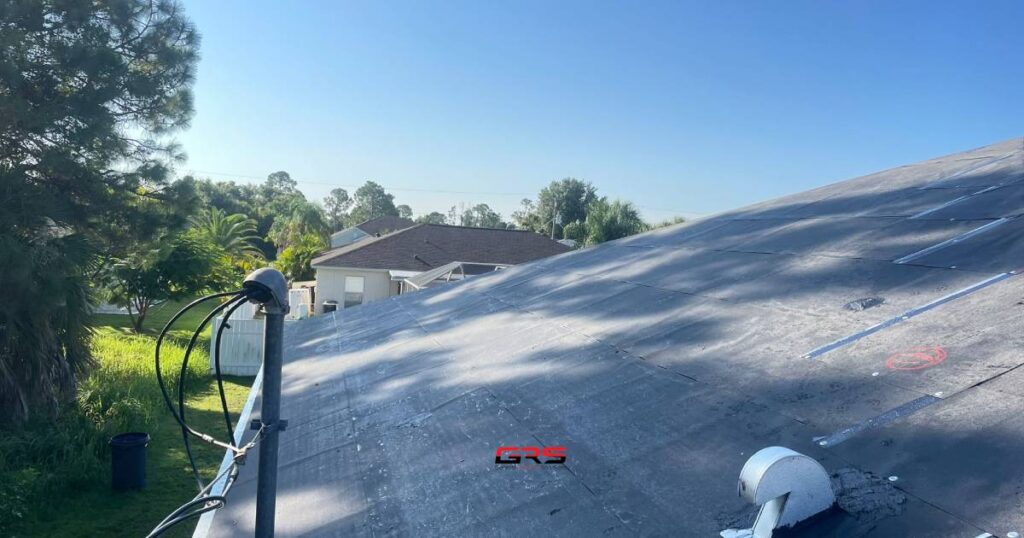When it comes to maintaining the safety and integrity of your home, few things are as important as your roof. Over time, even well-built roofs will require replacement due to wear and tear, weather damage, or old age. But when is the best time to replace your roof? Timing your roof replacement correctly can significantly affect the cost, efficiency, and quality of the work done. Today, we’ll explore the factors that influence the timing of a roof replacement and help you determine the best time to replace your roof.
Don’t wait until it’s too late plan your roof replacement now! Knowing the best time to replace your roof can save you time, money, and stress. Contact a roofing expert today to schedule your inspection and get started on your roof replacement plan.
Why Timing Matters for Roof Replacement
The timing of your roof replacement is crucial for several reasons. Weather conditions, contractor availability, and material prices can all fluctuate depending on the season, impacting both the cost and the quality of the installation. Replacing your roof at the right time can ensure a smoother process, fewer delays, and better overall results.

The Best Time to Replace Roof: Seasonal Considerations
While a roof replacement can technically be done at any time of the year, certain seasons offer more favorable conditions for this significant home improvement project. Here’s a breakdown of the pros and cons of replacing your roof during each season:
1. Spring
Spring is often considered one of the best times to replace a roof. The weather is typically mild, with temperatures ranging between 45°F and 85°F, which is ideal for roofing materials to be installed properly. Additionally, spring is a time when contractors are gearing up for the busy season, meaning you may have more flexibility in scheduling your roof replacement.
However, spring can also bring unpredictable rain showers, which may cause delays in the roofing process. It’s important to plan your roof replacement early in the season before the spring rains become more frequent.
2. Summer
Summer is another popular time for roof replacements, especially in areas with moderate climates. The long, sunny days provide plenty of daylight for roofers to complete the work, and the warm temperatures help ensure that roofing materials, such as asphalt shingles, seal properly.
However, in regions with extremely hot summers, the intense heat can pose challenges for both the roofing crew and the materials. High temperatures can cause shingles to become too soft, making them more susceptible to damage during installation. Additionally, working in extreme heat can be dangerous for roofers, potentially leading to slower progress.
If you’re considering a roof replacement in the summer, aim for early summer or late summer when temperatures are more moderate. This timing can help you avoid the peak heat while still taking advantage of the season’s longer days.+
3. Fall
Fall is often regarded as the best time to replace a roof by many roofing professionals. The weather is typically stable, with mild temperatures and lower humidity levels, creating ideal conditions for roofing work. The cooler temperatures also make it more comfortable for the roofing crew to work efficiently.
Another advantage of replacing your roof in the fall is that you’ll have a new, sturdy roof in place just before the winter weather arrives. This timing ensures that your home is well-protected from the elements during the coldest months of the year.
However, because fall is such a popular time for roof replacements, it’s important to book your contractor well in advance. Waiting until the last minute could result in delays, as roofing companies are often fully booked during this peak season.
4. Winter
Winter is generally not considered the best time to replace a roof due to the challenges posed by cold temperatures, snow, and ice. Roofing materials, such as asphalt shingles, can become brittle in cold weather, making them more difficult to install and more prone to damage. Additionally, winter weather can cause delays in the roofing process, as roofers may need to wait for snow and ice to clear before they can safely work on your roof.
However, there are some situations where a winter roof replacement may be necessary, such as if your roof has suffered significant damage and cannot wait until spring. In these cases, it’s important to work with a roofing contractor who has experience with winter installations and knows how to manage the challenges posed by cold weather.
If you do need to replace your roof in the winter, aim for a period of mild weather and avoid scheduling the work during a time when snow or freezing temperatures are expected.
Factors to Consider When Timing Your Roof Replacement
In addition to the seasonal considerations, there are several other factors to keep in mind when determining the best time to replace your roof:
1. Roofing Material
The type of roofing material you choose can influence the timing of your roof replacement. Some materials, such as asphalt shingles, are more sensitive to temperature changes and require specific conditions for proper installation. Other materials, such as metal or tile, may be less affected by seasonal variations. Discuss your material options with your roofing contractor to determine the best time to replace your roof based on the specific material you plan to use.
2. Contractor Availability
Contractor availability can vary depending on the season. Spring and fall are the busiest times for roofing contractors, so it’s important to book your roof replacement well in advance if you plan to replace your roof during these peak seasons.
If you’re looking for more flexibility in scheduling, consider a roof replacement in the late summer or early winter when contractors may have more availability.
3. Cost Considerations
The cost of a roof replacement can also fluctuate depending on the season. During peak seasons, such as spring and fall, demand for roofing services is high, which can drive up prices. On the other hand, during the slower winter months, some contractors may offer discounts or promotions to fill their schedules. If budget is a concern, consider timing your roof replacement during a less busy time of year to take advantage of potential cost savings.
How to Prepare for Your Roof Replacement
Once you’ve determined the best time to replace your roof, it’s important to prepare your home and property for the roofing project. Here are a few steps you can take to ensure a smooth roof replacement process:
1. Clear the Area Around Your Home
Before the roofing crew arrives, make sure to clear the area around your home of any obstacles, such as vehicles, patio furniture, or children’s toys. This will provide the crew with easy access to your roof and help prevent any damage to your belongings.
2. Protect Your Home’s Interior
Replacing a roof can be a noisy and disruptive process. To minimize the impact on your home’s interior, cover any valuable or delicate items with tarps or plastic sheeting. You may also want to remove any items hanging on the walls, as the vibrations from the roofing work can cause them to fall.
3. Communicate with Your Neighbors
A roof replacement can be noisy, so it’s a good idea to let your neighbors know about the project in advance. This will give them a chance to prepare for any disruptions and help maintain good relationships with your neighbors.
Ready to replace your roof? Timing is everything! Schedule your roof replacement during the best time to replace your roof and ensure a smooth and successful project. Contact a roofing professional today to discuss your options and get a free estimate
In Conclusion Choose the Best Time to Replace Your Roof
Deciding on the best time to replace your roof is an important part of ensuring a successful and cost-effective roof replacement. By considering the seasonal factors, contractor availability, and material requirements, you can choose the optimal time to complete this essential home improvement project. Whether you decide to replace your roof in the mild spring, the busy fall, or even the winter, planning ahead and working with a trusted roofing contractor will help you achieve the best results.
Don’t wait until the last minute plan your roof replacement today! Contact a roofing expert to determine the best time to replace your roof and ensure your home stays protected all year round. Schedule your consultation now and take the first step toward a secure and durable roof.


